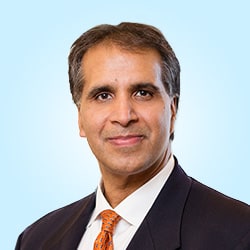- Introductory Overview
- About Cornell's Legal Information Institute (LII), its mission, and its history
- An overview of how laws and legal resources get online
- How Federal Statutes & Regulations Get Into Legal Research Platforms
- Congress, Public Laws, and the U.S. Code
- Electronic dissemination and organization of enacted statutes
- The Executive Agencies and the Rulemaking Process
- The Federal Register
- Finalized Regulations and the eCFR
- State laws and regulations: a separate challenge
- Copyright and Public Access to the Law
- The Government Edicts Doctrine
- Georgia v. Public.Resource.Org
- Incorporation by reference: model codes and private standards
- American Society for Testing and Materials v. Public.Resource.Org
- UpCodes cases
- Do commercial legal publishers face antitrust liability when they exclude competitors from licensing primary legal materials?
- Thomson Reuters v. ROSS Intelligence
- Ramifications for Today and Tomorrow
- Governmental and other free websites for accessing statutes and regulations
- The impact of open access to legal materials on AI-powered legal research tools
- Questions & Answers
This webinar is divided into section summaries, which you can scan for key points and then dive into the sections that interest you the most.
Please note this AI-generated summary provides a general overview of the webinar but may not capture all details, nuances, or the exact words of the speaker. For complete accuracy, please refer to the original webinar recording.

The Legal Information Institute at Cornell Law School

The Legal Information Institute at Cornell Law School
*CLE credit is only available to Justia Connect Pros. Not a Pro? Upgrade today>>
Status: Approved
Credits: 1.00 General
Earn Credit Until: June 30, 2026
Status: Approved
Credits: 1.00 General
Earn Credit Until: February 28, 2026
Status: Approved
Credits: 1.00 General
Difficulty: All Levels
Earn Credit Until: December 31, 2025
Status: Approved
Credits: 1.00 General
Earn Credit Until: January 31, 2026
This presentation is approved for one hour of General CLE credit in California, North Carolina, and South Carolina (all levels). This course has been approved for Minimum Continuing Legal Education credit by the State Bar of Texas Committee on MCLE in the amount of 1.00 credit hours.
Justia only reports attendance in jurisdictions in which a particular Justia CLE Webinar is officially accredited. Lawyers may need to self-submit their certificates for CLE credit in jurisdictions not listed above.
Note that CLE credit, including partial credit, cannot be earned outside of the relevant accreditation period. To earn credit for a course, a lawyer must watch the entire course within the relevant accreditation period. Lawyers who have viewed a presentation multiple times may not be able to claim credit in their jurisdiction more than once. Justia reserves the right, at its discretion, to grant an attendee partial or no credit, in accordance with viewing duration and other methods of verifying course completion.
At this time, Justia only offers CLE courses officially accredited in certain states. Lawyers may generate a generic attendance certificate to self-submit credit in their own jurisdiction, but Justia does not guarantee that lawyers will receive their desired CLE credit through the self-submission or reciprocity process.




